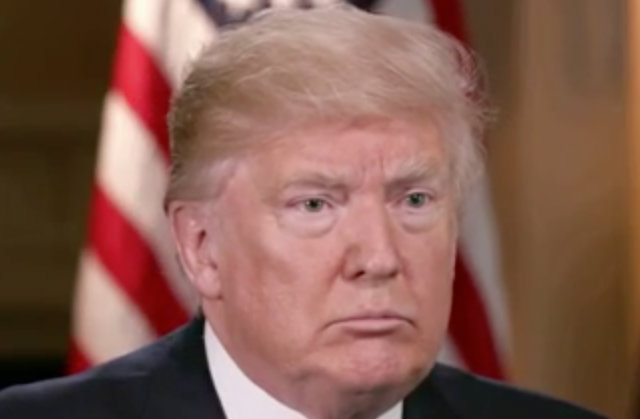
Fired FBI Director James Comey is scheduled to testify before the Senate Intelligence Committee next Thursday, and a CNN report claimed he will say President Donald Trump pressured him to drop an investigation into former National Security Adviser Michael Flynn. If so, it will have political and possible legal ramifications for the Administration. But can the POTUS stop this from happening? He could use what is called executive privilege.
Spokespeople Kellyanne Conway and Sean Spicer haven’t ruled it out.
What is executive privilege, and what kind of leverage does it provide? It lets presidents keep executive branch communications confidential, even if Congress and the courts demand something. It stems from a 1974 Supreme Court decision. Ironically, it was a case a president lost. In United States v. Nixon, President Richard Nixon claimed he was immune from a special prosecutor’s subpoena because he had executive privilege.
The Court acknowledge some of his argument [emphasis ours].
The expectation of a President to the confidentiality of his conversations and correspondence, like the claim of confidentiality of judicial deliberations, for example, has all the values to which we accord deference for the privacy of all citizens and, added to those values, is the necessity for protection of the public interest in candid, objective, and even blunt or harsh opinions in Presidential decisionmaking. A President and those who assist him must be free to explore alternatives in the process of shaping policies and making decisions, and to do so in a way many would be unwilling to express except privately. These are the considerations justifying a presumptive privilege for Presidential communications.
But the Court ruled this power had limits. Presidents had to be specific about their reasons when using it, and these had to be convincing. From the holding [citations removed; emphasis ours]:
Neither the doctrine of separation of powers nor the generalized need for confidentiality of high-level communications, without more, can sustain an absolute, unqualified Presidential privilege of immunity from judicial process under all circumstances. … Absent a claim of need to protect military, diplomatic, or sensitive national security secrets, the confidentiality of Presidential communications is not significantly diminished by producing material for a criminal trial under the protected conditions of in camera inspection, and any absolute executive privilege under Art. II of the Constitution would plainly conflict with the function of the courts under the Constitution.
If Trump evokes privilege to stop Comey from testifying, there will be different facts at play than in Nixon. Remember, the former FBI Director doesn’t work for the government anymore. It is conceivable Trump could pursue a restraining order, but nonetheless, he would still have to convince a judge he is using his authority in way that will benefit national security needs and the like.
Trump fired Comey on May 9, ostensibly for doing a bad job leading the FBI. This sparked skepticism and criticism since the feds were investigating his campaign for alleged collusion with Russia during the 2016 campaign. A New York Times report one week later claimed he asked Comey to drop a federal probe into Flynn. Another article claimed he asked him for “loyalty.”
Such alleged behavior has lead critics to wonder if the president committed obstruction of justice. A professor we spoke to, George Washington University Law School’s Jonathan Turley, advised restraint, however. The federal obstruction of justice statute is relatively narrow, and Trump’s reported behavior doesn’t seem to violate it.
[Featured Image, a screengrab, via C-SPAN; screengrab up top via NBC]
Have a tip we should know? [email protected]